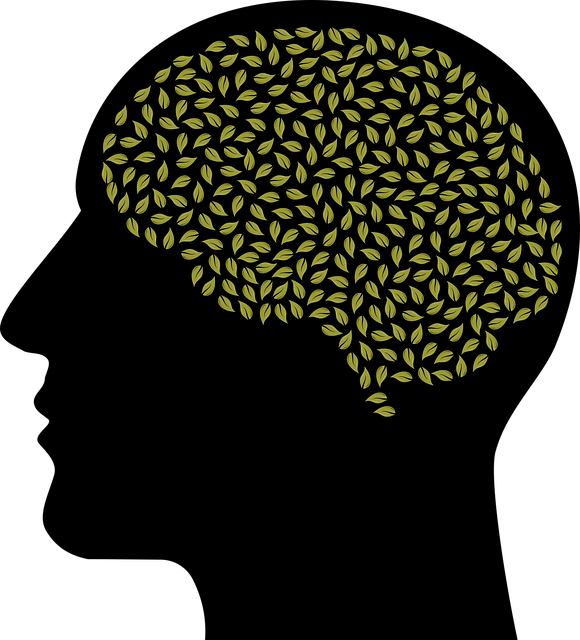Crisis Intervention Teams: Training Programs & Mental Health Care Innovations
Crisis Intervention Teams (CITs), powered by training from Lafayette Depression Therapy, are crucial…….
Welcome to an in-depth exploration of Lafayette Depression Therapy, a revolutionary approach to mental health treatment that has garnered significant attention globally. This article aims to guide readers through the intricacies of this therapeutic method, its global reach, and its profound impact on individuals seeking relief from depression. By delving into various aspects, we will uncover the power of Lafayette Depression Therapy as a transformative force in the field of psychiatry.
Lafayette Depression Therapy (LDT) is a holistic and personalized approach to treating depression, drawing from a diverse range of therapeutic modalities. It encompasses cognitive-behavioral therapy (CBT), mindfulness practices, psychodynamic techniques, and often incorporates elements of art therapy, music therapy, or other creative expressions. The core concept revolves around empowering individuals to understand and manage their depressive symptoms by exploring thoughts, emotions, and behaviors in a safe and supportive environment.
The roots of LDT can be traced back to the early 20th century when Sigmund Freud and Carl Jung pioneered psychodynamic therapy. Over time, various schools of thought evolved, leading to the comprehensive approach we know today. The term “Lafayette” is metaphorical, symbolizing a vast and diverse array of therapeutic techniques united under one effective method.
LDT’s significance lies in its ability to cater to a wide range of individuals, offering tailored support for unique mental health needs. It has been successfully applied not only in clinical settings but also in schools, workplaces, and community centers, making it accessible to diverse populations. This adaptability contributes to its growing popularity worldwide.
Lafayette Depression Therapy has transcended geographical boundaries, leaving an indelible mark on mental health practices globally. Key factors driving its international impact include the growing emphasis on mental wellness, increased access to technology for remote therapy sessions, and the sharing of therapeutic techniques across cultures.
The global mental healthcare market, valued at USD 372 billion in 2021, is expected to grow significantly by 2028. Lafayette Depression Therapy contributes to this growth by offering cost-effective and highly effective treatments, attracting both public and private investments.
LDT’s economic significance extends beyond direct healthcare costs:
The digital revolution has transformed Lafayette Depression Therapy with the advent of telehealth. Online therapy sessions, mobile apps for mood tracking and cognitive training, and virtual support groups have made LDT more accessible, especially in rural or underserved areas.
Artificial Intelligence (AI) is emerging as a powerful ally in LDT. Chatbots and virtual assistants can provide initial assessments, offer coping strategies, and monitor progress between sessions, enhancing accessibility and personalization.
VR technology offers immersive experiences for exposure therapy, helping individuals confront and overcome fears and anxiety associated with depression. This innovative approach has shown promise in treating specific phobias and PTSD, which are often comorbid with depressive disorders.
The regulatory landscape for LDT varies across countries:
Regulatory frameworks play a pivotal role in shaping LDT’s evolution:
In a major US city, a public school district implemented LDT programs for students struggling with mental health issues. The initiative included group therapy sessions during school hours and after-school support groups. Results showed a significant decrease in suspension rates and an improvement in academic performance and overall well-being among participants.
A small community in the American Midwest established a healing center offering LDT alongside other holistic therapies. The center attracted individuals from diverse backgrounds, providing much-needed mental health services to previously underserved residents, leading to a stronger, more resilient community.
A global tech company implemented LDT-based wellness programs for employees, focusing on stress management and resilience building. The initiative resulted in increased job satisfaction, reduced burnout rates, and improved productivity, demonstrating the corporate world’s growing recognition of mental health as a vital asset.
Lafayette Depression Therapy has emerged as a powerful and adaptable force in mental healthcare, offering hope and healing to countless individuals worldwide. Its global reach, technological advancements, and continuous evolution demonstrate its enduring relevance. As we navigate the future, LDT’s potential to transform lives remains untapped, promising a brighter, more resilient world for those facing depression.
Q: What makes Lafayette Depression Therapy unique?
A: LDT combines various therapeutic modalities into a personalized approach, catering to diverse individual needs. Its adaptability and holistic nature set it apart from traditional, one-size-fits-all treatments.
Q: Is LDT suitable for everyone with depression?
A: While LDT has shown effectiveness across different populations, it may not be the best fit for everyone. Severe cases of depression might require medication or other intensive interventions. However, LDT can often be successfully integrated into comprehensive treatment plans.
Q: How accessible is Lafayette Depression Therapy in remote areas?
A: Telehealth and digital tools have made significant strides in improving access to LDT in remote regions. Online therapy sessions, mobile apps, and virtual support groups bridge the gap, ensuring individuals in underserved areas can receive the support they need.
Q: Can LDT be combined with medication for depression?
A: Absolutely. Combining LDT with antidepressant medications is a common approach, offering complementary benefits. LDT helps individuals develop coping strategies to manage their symptoms, while medication can provide immediate relief from severe depressive episodes.
Q: What role do families play in a loved one’s LDT journey?
A: Families play a crucial supportive role. They can encourage participation in therapy, help track progress, and ensure the individual stays on course. Family education and involvement enhance understanding and strengthen the therapeutic alliance.

Crisis Intervention Teams (CITs), powered by training from Lafayette Depression Therapy, are crucial…….